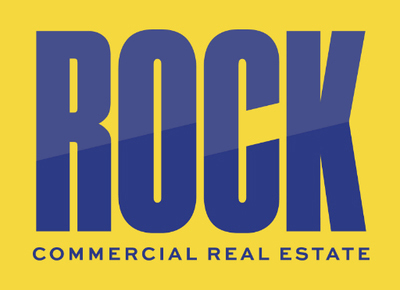by Patten Mills & Kevin Hodge | 4 min. read
Have you considered how much more you could achieve with your money if you didn’t have to pay good ole’ Uncle Sam? The 1031 like-kind exchange program provides business owners and investors the ability to roll proceeds from the sale of one investment property into the purchase of another, thereby deferring any capital gains taxes on profits from the sale and allowing more capital to be spent towards the new asset. A wide variety of motivators based on circumstance including retirement, portfolio growth acceleration through leverage, relocation, or optimization of facility efficiency for your business could incentivize individuals and corporations to upgrade properties using a 1031 exchange.
Providing A Leg Up for Business Owners and Investors Since 1921
For the last century, individuals and corporations have utilized the 1031 exchange program as an economic tool to leverage and expand investment in real estate. In a 2020 study, Ling and Petrova concluded that investment in replacement properties purchased through like-kind exchanges is on average 15.4% greater and capital expenditures approximately $0.50 higher per square foot than properties purchased through fully taxable sales. Business owners and investors, large and small, utilize the 1031 exchange program, with the average price of properties exchanged from 2010 to 2020 being approximately $575,000.
While Internal Revenue Code specifies that properties must be like-kind, this just means that the property must be commercial and not a personal residence. Office condominiums, automotive service businesses, shopping centers, apartment buildings, and land for future development are just a few examples of real estate assets that can be traded through like-kind exchange. Stock in trade is excluded as the program is not applicable for those purchasing a property with the intention of immediately selling it after making improvements. Therefore, 1031 exchanges may not be an option for house flippers and housing developers that build homes for sale.
Deferral of taxes makes exchanges of suboptimal investments for more productive investments more feasible for property owners. A small business owner may rely on a 1031 exchange to put all value from the sale of their business and real estate towards an investment that provides passive income in retirement, such as a property with long-term NNN leases. An investor may decide to leverage their residential rental portfolio to level-up to a larger-scale investment with potential for higher returns like a new mixed-use development.
"A small business owner may rely on a 1031 exchange to put all value from the sale of their business and real estate towards an investment that provides passive income in retirement."
Any commercial property within the United States can be exchanged for another commercial property. For instance, a company relocating from Maryland to Pennsylvania can use a like-kind exchange to apply profits from the sale of the company’s office building in Maryland directly towards the purchase of an office building in Pennsylvania without paying capital gains taxes. Properties can be exchanged across state lines, however, tax treatment at the state level varies. Pennsylvania currently does not acknowledge the 1031 exchange at the state level. Therefore, either PA’s Personal Income Tax (PIT) or PA’s Corporate Net Income Tax is still due at the time of sale depending on if the exchange is completed by an individual or corporation.
All properties involved in a 1031 exchange transaction must be owned for business use or as a long-term investment, but a portion of a primary residence may be used in a 1031 exchange if utilized for business or investment purposes. Any amount of equity in a property being sold can be rolled over but not without incurring tax exposure. All equity from the sale of a property must be put towards the purchase of a new property or properties, which must be of equal or greater value than that of the sold property or portion put into the exchange. If not, there will be a tax on the remaining gain.
What’s the Catch?
An exchange must be initiated prior to the sale of the original property. Sale proceeds cannot be accessed once involved in a 1031 exchange without being subject to taxes. Potential replacement properties must be identified before or within 45 days of initiating a 1031 exchange with the sale of a property, and there are limits on the number of potential properties that can be identified. Settlement must be within 180 days following the sale of the initial property. Time limits can result in hasty decisions distorted by tax implications, for example, overpaying for a property in order to meet the requirements of a like-kind exchange and defer taxes. Contract stipulations that make sales contingent upon successful identification or purchase of replacement properties are one form of protection for owners.
Capital gains taxes are deferred, not forgiven, through a 1031 Exchange. As investors anticipate the risk of potential increases to capital gains taxes, taxable transactions may be completed with the motivation to pay capital gains at the current rate and reset the tax basis rather than rolling profits into a 1031 exchange. While 1031 exchanges can improve efficiency and liquidity in markets by providing the capital required for certain exchanges, assets become less liquid when involved in a 1031 exchange as it may not be rational to sell a property if accumulated capital gains taxes have a significant negative impact on profit from sale.
Is a 1031 Exchange the Right Strategy for Me?
Commercial property owners’ goals guide investment strategy. The biggest consideration is whether a 1031 exchange will improve returns above inflation and cost. Like the options of retirement savings accounts that incur taxes before depositing (Roth IRA) and accounts that do not incur taxes until withdrawn (401K), the 1031 exchange provides the option to defer payment of taxes on gains. While 1031 exchanges can lower transaction costs and free up capital in the short-term by deferring capital gains taxes typically paid upon the sale of a property, it must provide sufficient benefit to justify the associated costs. Every deal is different, and the economic climate is constantly changing. Therefore, it is important to consult with an experienced commercial real estate advisor, tax advisor, and attorney to determine the implications of doing a tax deferred exchange and how best to achieve your investment goals.






